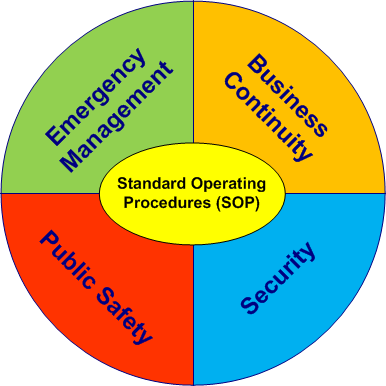Operations
|
Getting the most from a system requires good
operations plans, that are understood by all users and
are used routinely or practised regularly.
Developing a plan often requires negotiation with
other groups, both internally and externally.
Establishing proper governance for these relationships
is often the most challenging part of developing
a plan.
Having a great plan that no one heard of, or that
has been forgotten, is not useful. Operations plans
must be reinforced through regular training and
practice. It is also important that senior management
promote the importance of these relationships, plans
and ongoing practice, as well as ensuring funding is
avaialable.
Where possible, operations plans should be applied
on a daily basis. Specialty plans such as emergency or
Business Continuity plans should be exercised
regularly. People forget what they learned, staff
turnover brings in new people, and the organization
evolves, so exercises are a chance to review the plan.
|
Being
successful requires more than just routine operations
for a business or Public Safety
agency. Integrated programs for routine operations,
Business Continuity, Emergency Management and
Security are all critical for surviving the unexpected. |
|
Standard Operating
Procedure (SOP)
SOPs cannot be written in isolation.
Whether Government or Business, Emergency Management depends
on Public Safety and Security when an incident happens. While
Emergency Management deals with the immediate
situation, Business Continuity deals with keeping the
business operating until everything returns to the "normal
state" .
SOPs must include dealing with outside
agencies as well as internal groups. During an incident is not
the time to determine the boundaries between agencies and
organizations.
Technology must also support an integrated
response. Shared communications infrastructure can enhance
capabilities, while reducing costs. Interoperability between
groups within an organization can provide important
coordination and management, reducing confusion and time
wasted.
Understanding how different departments and
agencies function and their mandates for each, helps develop a
plan that has the technical and operational capabilities
required by an organization. This can include training
programs with specific training material, as well as an
exercise program with exercises to test and improve on the
SOPs.
There are also SOPs that support
capabilities that are used in response, but are not response
SOPs in themselves. Encryption is an example of a capability
that needs robust SOPs and governance, to ensure proper
operation on a daily basis, including during a response.